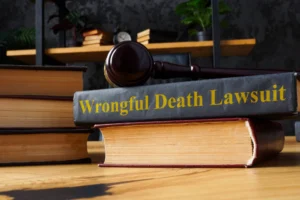If you’ve been caught in a sting operation at the U.S.–Mexico border and are now facing smuggling charges, the decisions you make next can shape the rest of your life. Whether you’re accused of smuggling humans, drugs, or firearms, you need to act fast and protect your rights. Here’s what to do next:
- Remain silent. Do not answer any questions without a lawyer present.
- Do not consent to a search or provide a statement, even if officers pressure you.
- Request a criminal defense attorney immediately. One with experience in both federal and Texas state courts.
Sting operations are complex and legally controversial. Law enforcement agencies invest heavily in them, particularly near border checkpoints — but being arrested in a sting doesn’t mean you’re automatically guilty. Charges stemming from these operations are sometimes built on flimsy evidence, questionable tactics, or flawed assumptions.
If you or someone you know has been charged with a smuggling-related offense at the border, you need an experienced attorney who is willing to fight for your rights. Contact Guzman Law Firm today for a consultation online or over the phone.
How do sting operations work at the border?
A sting operation is a law enforcement tactic designed to catch someone in the act of committing a crime. At the border, this usually involves undercover agents, confidential informants, or decoy scenarios — such as fake transport requests, staged drop-offs, or controlled deliveries — meant to lure suspects into attempting human smuggling, drug trafficking, or firearms importation.
Border-related sting operations are often carried out by one or more of the following agencies:
- U.S. Customs and Border Protection (CBP)
- Immigration and Customs Enforcement (ICE)
- Homeland Security Investigations (HSI)
- Drug Enforcement Administration (DEA)
- Bureau of Alcohol, Tobacco, Firearms and Explosives (ATF)
These stings typically target smugglers who transport undocumented immigrants (human smuggling); narcotics such as fentanyl, cocaine, or methamphetamine; or firearms destined for cartel use or domestic criminal networks.
Some stings involve elaborate setups. In other operations, agents may trace shipments, track phone communications, or use informants to arrange deals, then arrest suspects during the handoff. The challenge? Sting operations sometimes entrap people who weren’t predisposed to commit a crime — raising major legal questions.
Are sting operations legal?
Sting operations walk a legal tightrope. While they are allowed under U.S. law, they must follow constitutional limits — especially those set out by the Fourth and Fifth Amendments, which protect against unlawful search and seizure and self-incrimination, respectively.
The key legal question in sting cases is often entrapment. Entrapment occurs when law enforcement induces someone to commit a crime they otherwise would not have committed. The defense must show:
- Government inducement: The idea and opportunity came from the government.
- Lack of predisposition: The accused wasn’t inclined to commit the crime on their own.
Courts allow stings when they target people already suspected of criminal behavior. But if officers pressure someone with no prior intent, the operation can become legally questionable.
Are border sting operations cases tried differently in court?
Legally, smuggling charges from sting operations are prosecuted under the same statutes as other cases. But the method of arrest (sting vs. direct interdiction) can impact trial strategy, especially when entrapment or due process violations are at play.
Relevant federal charges may include:
- Bringing in and harboring undocumented immigrants
- Drug possession with intent to distribute
- Firearms trafficking and illegal possession
In sting-related cases, judges and juries must assess whether the defendant took actions knowingly and willfully. In short, the burden is on the prosecution to prove criminal intent. If a federal defense attorney can show that the defendant was entrapped, misled, or unlawfully targeted, the case may be dismissed or result in reduced charges.
What law enforcement looks for in smuggling cases
Federal agents typically follow patterns of behavior when building a case. Before a sting is executed, law enforcement often conducts surveillance and gathers intelligence. They may track:
- Suspicious border crossings
- Frequent travel to stash houses or known drop points
- Social media or encrypted messaging activity
- Association with known traffickers or smugglers
- Vehicle modifications used for concealment (false compartments, reinforced beds)
In human smuggling cases, officers may focus on drivers hired to move migrants across the last leg of their journey. In drug and gun cases, suspects may be targeted for facilitating transfers, packaging, or storage.
Importantly, being in the wrong place at the wrong time does happen. For instance, borrowing a friend’s truck or unknowingly being asked to carry a sealed package could result in criminal charges, even if you had no knowledge of its contents.
That’s why a federal defense attorney’s job is to challenge the assumptions behind the case, question the tactics used by police, and uncover weaknesses in the prosecution’s theory.
What are the penalties for smuggling convictions?
Federal smuggling charges carry harsh penalties, especially when aggravating factors are involved — such as transporting large quantities, using minors, or causing injury or death.
| Charge | Jail time | Additional penalties |
| Human smuggling | Up to 10 years per person transported | Longer sentences for offenses involving injury, death, or criminal organizations |
| Drug smuggling | 5 to 40 years, depending on quantity | Mandatory minimums may apply — especially with prior offenses |
| Gun smuggling | Up to 15 years | Enhanced penalties if the firearm is tied to violent crime or exported to a foreign entity |
A conviction may also lead to asset forfeiture, immigration consequences, and permanent criminal records, severely impacting employment, housing, and family life.
Legal defenses for smuggling charges
Federal defense attorneys use a range of smuggling defense strategies to challenge charges from border stings. These include:
1. Entrapment
As mentioned, this defense argues that the government improperly pressured the defendant into committing a crime they weren’t predisposed to commit. Proving entrapment can lead to full acquittal — but be aware that the line between a sting operation vs entrapment is razor thin.
2. Lack of knowledge or intent
In some cases, defendants may claim they didn’t know what they were transporting — for example, a friend asked them to deliver a package, or they drove a vehicle unaware it contained contraband.
3. Illegal search or seizure
If agents violated constitutional rights by stopping, searching, or detaining someone without proper cause, the evidence may be suppressed due to illegal search and seizure. This could cripple the prosecution’s case.
4. Coercion or duress
If the defendant was threatened, forced, or blackmailed into participating in a smuggling scheme (common in cartel-related cases), this can be raised as a defense.
5. Challenging the reliability of informants
Many sting operations rely on confidential informants. If their credibility, motivations, or criminal history are questionable, it can cast doubt on the case.
6. Misidentification
Especially in larger operations, individuals may be wrongly accused due to mistaken identity or sloppy investigative work.
Caught in a border sting? Call Guzman Law Firm to defend your rights.
If you or someone you love has been caught in a border sting operation, you’re likely facing serious federal charges with life-changing consequences. The government is already building its case — now it’s time to build yours.
At Guzman Law Firm, we know how federal prosecutors work, how sting operations unfold, and how to challenge the tactics used by law enforcement. With experience in both Texas state courts and U.S. District Courts, we fight aggressively to suppress evidence, reduce charges, or beat them outright.
Don’t face federal smuggling charges alone. Call Guzman Law Firm today for a confidential consultation. Your rights, your freedom, and your future depend on it.
More Helpful Articles by Guzman Law Firm:
- What Is Probable Cause in a Search for Drugs or Firearms?
- Who Is Liable in a Multi-Vehicle Accident in Texas?
- What Happens if You Refuse a Breathalyzer in San Antonio?
- What Are the Consequences of Missing a Court Date in Texas?
- How Texas Law Handles Uninsured Drivers in Car Accidents





